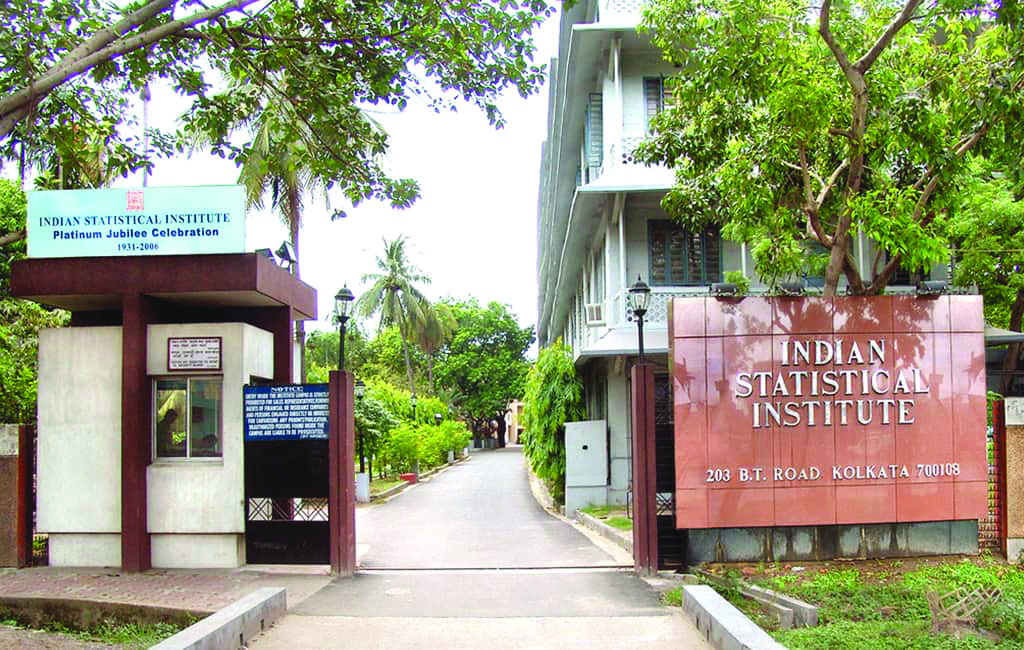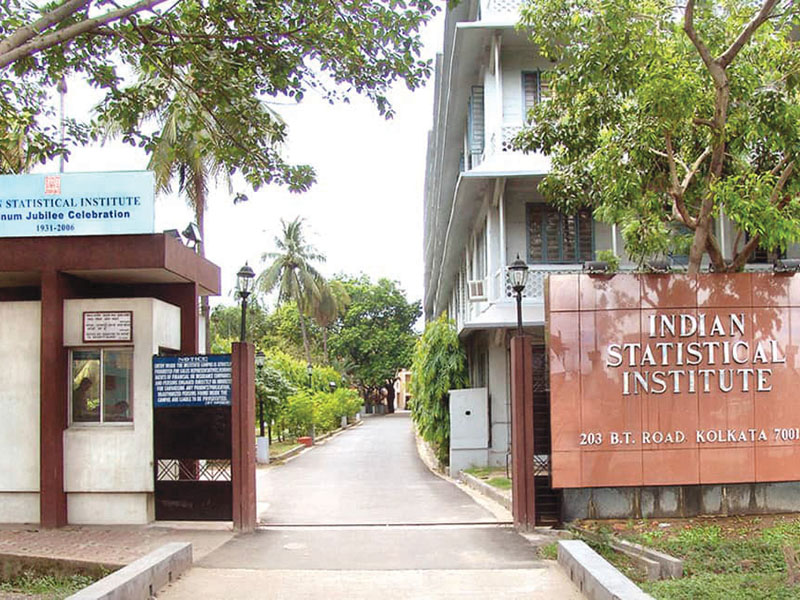West Bengal: Trojan horse fear
– Baishali Mukherjee (Kolkata)

Soon after india wrested independence from almost 200 years of extractive exploitative rule, under the influence of free India’s first prime minister Jawaharlal Nehru, India adopted Soviet-style central planning as the prescription for national development. This momentous policy decision transformed the Indian Statistical Institute, Kolkata (estb.1931) founded by eminent mathematician P.C. Mahalanobis into arguably the most important academic institution in the first two decades after independence.
Working together with the Soviet Gosplan-style Planning Commission comprising a dozen eminent economists committed to the Nehruvian vision of transforming India into a “socialist pattern of society,” Mahalnobis/ISI drew up several five-year resource mobilisation and expenditure plans based on input-output ratios to transform the agriculture-based Indian economy into a heavyweight industrial nation. But because responsibility for attaining the ambitious 5-6 percent per year GDP growth plans was vested in newly established public sector enterprises (PSEs) managed by business illiterate bureaucrats and clerks, 13 five year plans never attained their targets or recorded sufficient profits for investment in building physical (roads, logistics) or social (schools, hospitals) infrastructure. Annual GDP growth in post-independence India averaged a mere 3.5 percent per year for over half-a-century even as the country’s population tripled until 1991 when central planning was devalued as the Indian economy was liberalised and deregulated.
Promoted in 1931 on a sprawling 30-acre estate in the Baranagore suburb of Greater Kolkata, today, ISI is a self-governing scientific and research institution offering degree programmes in statistics, mathematics, quantitative economics, computer science, cryptology and security, library and information science, and quality management and operations research.
In its heyday in 1959 it was declared an Institution of National Importance through the ISI Act of 1959. Currently, ISI’s centers at Delhi, Bengaluru, Chennai, and Tezpur host 1,200 students, administered directly from the Kolkata headquarters on their muster rolls. And despite its past record ISI remains an Institution of National Importance and enjoys a good reputation among students and researchers oriented towards statistics, mathematical sciences, econometrics etc.
Against this backdrop a September 25 draft Indian Statistical Institute Bill 2025 of the Union Ministry of Statistics and Programme Implementation (MoSPI) to replace the Indian Statistical Institute Act, 1959 has outraged ISI faculty and students.
The new bill is the outcome of the recommendations of the Dr. R.A. Mashelkar Committee (2020), which urged ISI to “reimagine, reinvent, and reposition itself” by creating a leaner, more empowered governance structure with greater decision-making powers in policy, administration, and finance. The draft bill seeks to transform the institute from a registered society into a statutory body corporate; to redefine its objectives from a nation-building and welfare-oriented mission to one centred on global excellence.
However this bill has been greeted with suspicion by the institute’s faculty and employees who believe it is the first step towards a direct assault on the institution’s autonomy and legacy. Faculty members have urged the ministry to withdraw the bill and engage in “genuine consultations” with the ISI community to draft reforms in line with the Mashelkar Committee report.
A delegation of ISI professors recently visited the education ministry in Delhi to submit objections and feedback. “The bill is not reform but legislative demolition of the principles that have made the ISI a world-renowned institution,” three faculty members have written in a draft petition under circulation in academia circles.
It is pertinent to note that the proposed legislation will establish a board of governance whose chairperson — and seven of 11 members — will be Central government-nominated academics or officials, including representatives from MoSPI, Department of Science and Technology and the ministry of finance. This board will replace the existing 33-member ISI Council, which includes seven faculty members, director and dean. According to the provisions of the draft bill, “the Board of Governance shall be the principal executive body of the Institute.” And the ISI’s academic council — currently comprising the institute’s professors — will have fewer faculty members, all to be appointed by the board of governance, eliminating faculty participation.
“Currently, professors influence key academic and policy decisions, but under the new legislation, the academic council will be reduced to an advisory role, with the board empowered to overrule its recommendations,” says Tarun Naskar, a former professor at Jadavpur University who is also the general secretary of the All India Save Education Committee.
Moreover, references in the draft bill to the generation of revenue from students through fees and other charges have also stirred speculation that the institute might impose a “commercial fees structure”. At present, ISI is mainly funded by the Central government (annual budget: Rs.95 crore). Students admitted into undergraduate and postgraduate programs following a highly competitive entrance exam do not pay any tuition fees. On the contrary, they receive a monthly stipend of Rs.5,000. Faculty derive pride from asserting that ISI is a “truly meritocratic institution” that admits exceptionally talented students from poor and marginalised backgrounds to pursue world-class education. Now the apprehension is that once the bill becomes law, students will be required to pay tuition fees on a par with the country’s 23 IITs (Rs.8-10 lakh) and 21 IIMs (Rs.17-27 lakh).
Inevitably the possibility that tuition and residence fees may be imposed has exercised students and alumni. “Many of ISI’s most renowned scientists, researchers, and professors came from underprivileged and lower middle-class backgrounds. A steep fee hike at ISI could spell the end of the road for bright students from these very communities,” says Biswajit Mitra, an ISI alum and founder-member of the Kolkata- based Abheda Foundation.
Faculty and employees also apprehend the ISI head office will be moved out of Kolkata. Academics in Kolkata believe that given the highly adversarial relationship between the BJP government at the Centre and the Mamata Banerjee-led TMC government of West Bengal, the proposed restructuring of ISI is another attempt to erode Bengal’s intellectual and institutional pride — a symbolic strike at one of its most prestigious bastions of academic excellence.

















Add comment